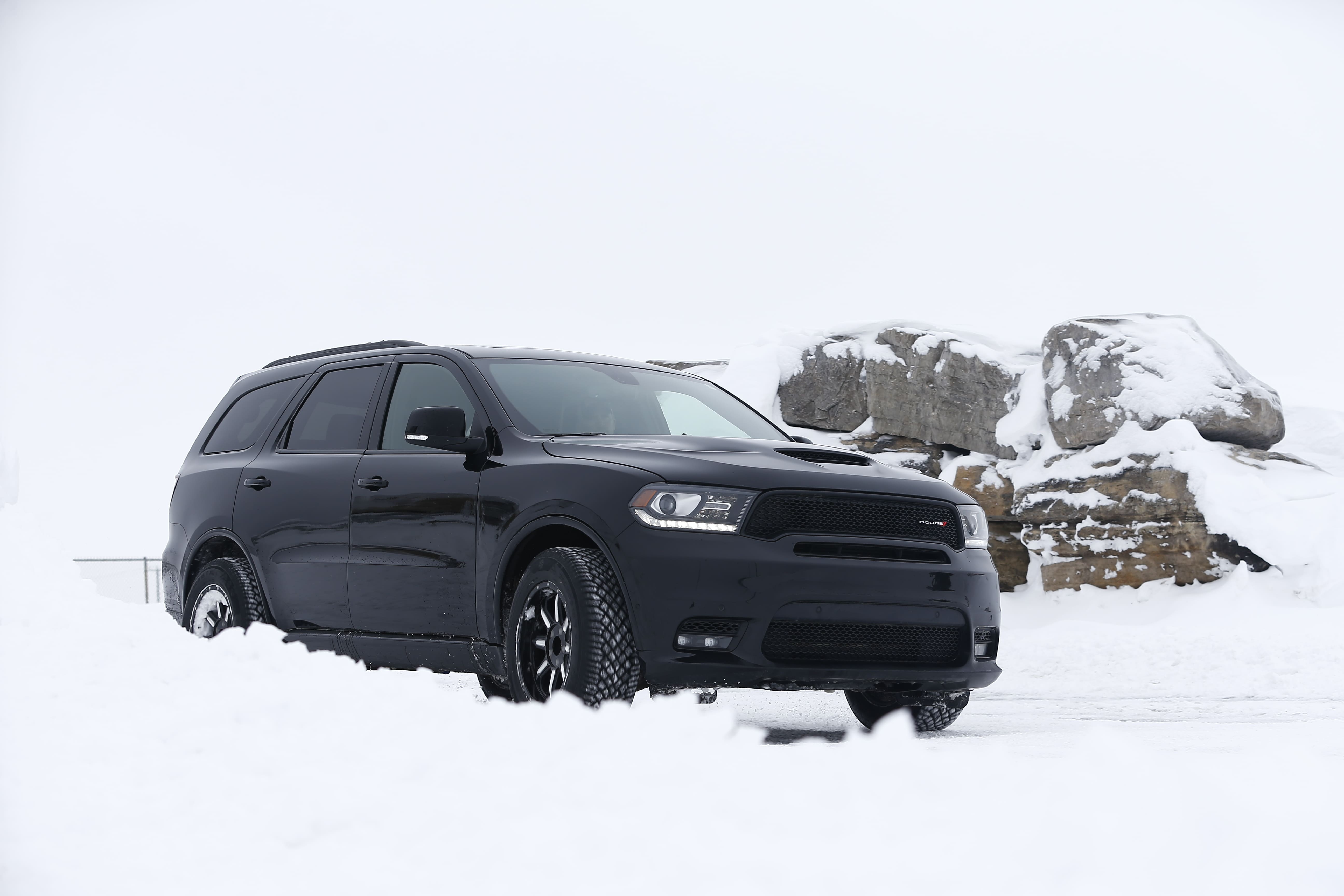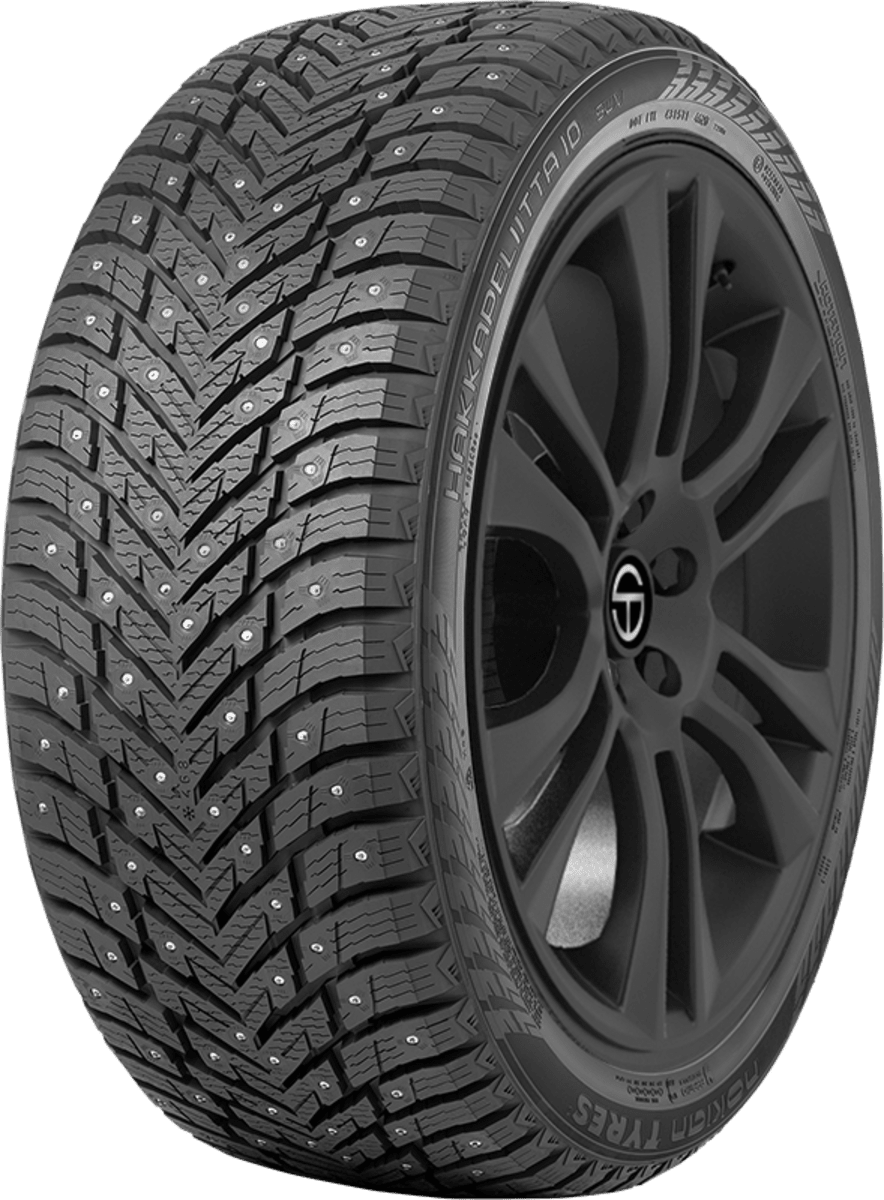Best Tires
Free shipping
Best price guarantee
Special pricing
Financing with Resolve
Easy returns
Free shipping
Best price guarantee
Special pricing
Financing with Resolve
Easy returns
Best Tires

Winter weather transforms roads into treacherous paths that demand specialized equipment for safe travel. SUV owners face unique challenges when temperatures drop and snow begins to fall—their vehicles' size and weight require tires engineered specifically for both winter conditions and the demands of larger vehicles.
The difference between standard tires and winter-specific models becomes dramatically apparent when ice forms or snow accumulates. Modern winter tire technology incorporates advanced rubber compounds and tread designs that maintain flexibility and grip when temperatures plunge below 45°F, providing the traction necessary for confident winter driving.
Choosing the right winter tires for your SUV involves understanding how these specialized tires work and which features matter most for your driving conditions. The investment in proper winter tires pays dividends through improved safety, shorter stopping distances, and better control when weather conditions deteriorate.

Winter tires for SUVs represent a specialized category of tires engineered to handle both the unique demands of sport utility vehicles and the challenges of cold-weather driving. Unlike all-season tires that compromise performance across various conditions, winter tires focus exclusively on delivering maximum traction when temperatures drop below 45°F. These tires feature rubber compounds specifically formulated with high silica content and special polymers that remain flexible in freezing temperatures—a critical difference from all-season tires that stiffen and lose grip as mercury falls.
The most distinctive characteristic of SUV winter tires lies in their aggressive tread patterns. Manufacturers design these treads with deeper grooves ranging from 10 to 12/32 inches, compared to the 8-10/32 inches found on standard all-season tires. The tread blocks feature thousands of tiny slits called sipes that create additional biting edges. These sipes work like microscopic squeegees: they flex open under pressure to grip ice and packed snow while channeling away the thin layer of water that forms when tires compress snow. Modern 3D sipes lock together under cornering forces to maintain block stability, preventing the squirmy feeling associated with older winter tire designs.
SUV-specific winter tires must also accommodate the unique physics of larger vehicles. Engineers reinforce sidewalls to handle higher load ratings—typically ranging from 2,000 to 3,500 pounds per tire, depending on the SUV size. The construction includes additional belt layers and stronger bead areas to maintain stability under the increased weight and higher center of gravity characteristic of SUVs. Every legitimate winter tire displays the Three-Peak Mountain Snowflake (3PMSF) symbol on its sidewall, certifying that it meets industry standards for severe snow traction. This symbol indicates the tire achieved at least 110% of the traction of a standard reference tire in controlled snow testing—a benchmark that no all-season tire can match.
Let’s take a look at the 5 recommended winter tires for SUVs on the market that allow you to drive confidently on snowy and icy roads:

Coming to the first winter tire recommendation for SUVs, we have the Pirelli Scorpion Winter. This studless winter tire is specially optimized for SUVs and is Three Peak Mountain Snowflake certified for use in winter weather conditions. It is rated at a great overall SimpleScore of 8.9, and its average starting price is $161. This winter tire is specially optimized for enhanced handling and braking performance on wet and snowy surfaces, outstanding traction in sub-freezing temperatures, confident cornering, and in-control lane changes. The tire’s dedicated scores for longevity, handling, and traction are 8.2, 9.4, and 9.4, respectively.
Get Pirelli Scorpion Winter tires at the best deals for your vehicle here

The Bridgestone Blizzak WS90 is another great studless winter tire optimized for SUVs. This winter tire has an excellent overall SimpleScore rating of 8.7 and features the Three Peak Mountain Snowflake symbol to represent confident driving on snow or ice. The tire’s average starting price is $119, and you can expect the tire to offer excellent winter traction, enhanced ride comfort, superior wet performance, outstanding braking performance on ice and snow, confident winter weather control, long-lasting tread life, and enhanced road grip. This tire scores an 8.4 in longevity, 8.7 in handling, and 9.2 in traction, assuring an overall great driving experience in winter conditions.
Get Bridgestone Blizzak WS90 tires at the best deals for your vehicle here

If you are specifically looking for a winter tire that has the ability to withstand the harshest of Nordic winter conditions, then choose the Nokian Hakkapeliitta 10 SUV. This studded winter tire is specially engineered and optimized to provide extra traction and surface biting ability, much needed on deep snow or ice. Nokian has specially optimized the Hakkapeliitta 10 SUV for superior grip on ice and snow, increased stability and ride comfort, improved mileage, and enhanced durability. The dedicated scores for longevity, handling, and traction are read as 9.1, 8.7, and 9.5, respectively. It is to be noted that the use of studded tires is subject to local laws.
Get Nokian Hakkapeliitta 10 SUV tires at the best deals for your vehicle here

The Falken Espia EPZ II SUV is another great choice for your SUV, as this studless winter tire is built and designed to offer confident winter performance. This tire is rated a great overall SimpleScore rating of 8.7, and its average starting price is $130. It scores a whopping 9.9 in longevity, an 8.0 in handling, and an 8.3 in traction. These scores are an indication of this winter tire’s reliable performance in diverse areas. The Falken Espia EPZ II SUV is specially optimized for hydroplaning resistance, strong wet handling, and strong traction in ice and snow. Thanks to the Three Peak Mountain Snowflake certification, this tire can be used in winter weather conditions.
Get Falken Espia EPZ II SUV tires at the best deals for your vehicle here

Maybe you want a price-point tire for your SUV to dominate in winter weather conditions. If that’s the case, the GT Radial IcePro SUV 3 Studded can be an affordable choice as it secures an 8.1 overall SimpleScore rating. This studded tire is pinned with studs wherever permitted by law to gain extra traction and grip in deep snow or ice. Its dedicated scores for longevity, handling, and traction are 9.0, 7.7, and 7.6, and the tire is specially tuned to offer solid wet and snow traction, enhanced ride comfort, controlled noise levels, improved flexibility in low temperatures, and commendable braking performance.
Get GT Radial IcePro SUV 3 Studded tires at the best deals for your vehicle here

Begin by identifying the primary winter conditions you encounter, such as icy surfaces or frequent snowfalls. This knowledge will inform which tire features best suit your driving environment. Reflect on your typical travel routes, whether you primarily navigate urban streets, rural roads, or highways, to understand the demands placed on your tires.
Consider any additional activities your SUV handles, like towing or transporting heavy cargo. Evaluate the proportion of your driving that occurs in city versus highway settings to determine necessary tire performance characteristics. Your comfort and confidence in handling winter roads should guide your selection, particularly if you prioritize traction and control.
Consult your vehicle's manual for guidance on appropriate winter tire dimensions to ensure compatibility and performance. Sometimes, opting for a slightly smaller wheel size enhances the tire's ability to absorb road impacts, crucial in winter conditions. Confirm that the tires meet the load-bearing capacity required for your SUV's specifications.
Ensure the chosen tire dimensions fit within your vehicle's suspension and fender wells to avoid clearance issues. For vehicles equipped with all-wheel drive, maintaining uniform tire size across all wheels is necessary to preserve drivetrain integrity and prevent mechanical issues.
When planning your purchase, analyze the cost of winter tires over their usable lifespan instead of focusing only on the upfront cost. This approach helps highlight the value of investing in high-quality tires that provide longevity. Additionally, consider that winter tires might qualify you for insurance discounts by enhancing vehicle safety.
Acquiring an extra set of wheels dedicated to winter tires can streamline seasonal transitions, reducing long-term expenses. Investigating previous year tire models can yield dependable options at a lower price point. Recognize that reliable winter tires often deliver several seasons of performance, making them a prudent safety investment.
Schedule your tire installation ahead of the first significant snowfall to ensure readiness for adverse weather. Properly storing off-season tires maintains their condition and maximizes their lifespan. Allocate funds for biannual tire changes, which are essential for maintaining year-round performance.
Consideration of your SUV's Tire Pressure Monitoring System (TPMS) is crucial during installation, as it ensures accurate tire pressure readings. Partnering with a knowledgeable installer who understands your SUV's specific requirements will facilitate a smooth installation process, safeguarding your vehicle's operational safety.
Winter driving demands the right equipment, and your SUV deserves tires that match both its capabilities and the challenges of cold weather conditions. The safety of you and your passengers depends on making an informed choice that considers your specific driving needs, regional weather patterns, and vehicle requirements. When you're ready to equip your SUV with the winter tires it needs, we invite you to shop for tires online and find the best deals with us.
Search By